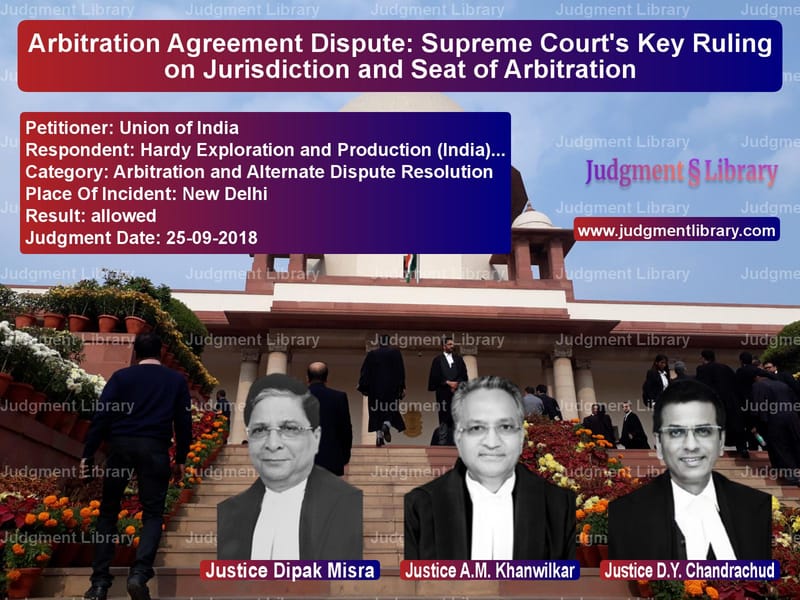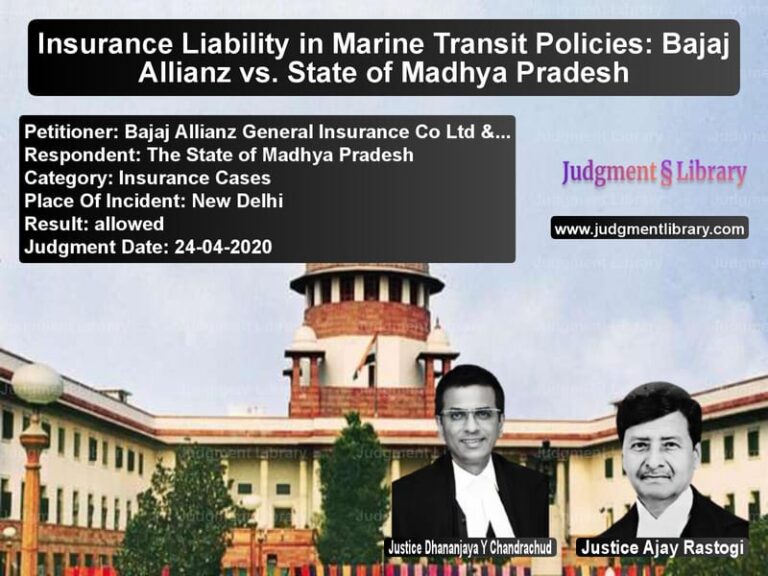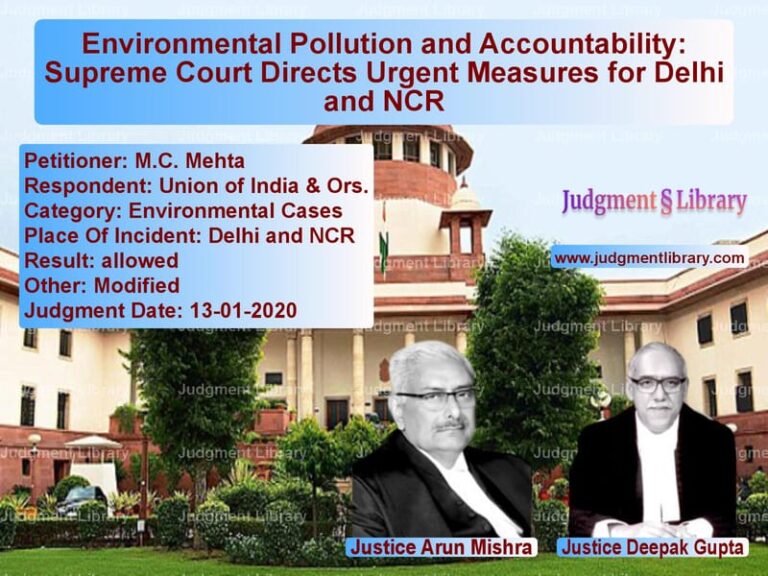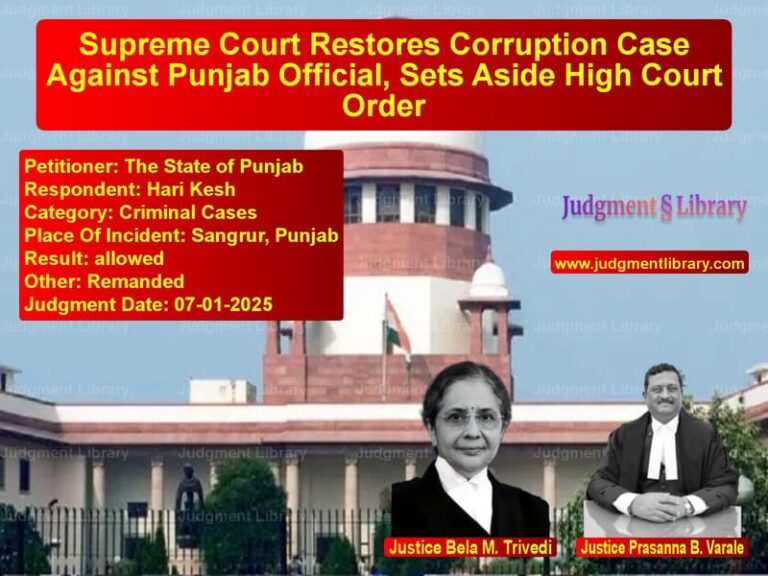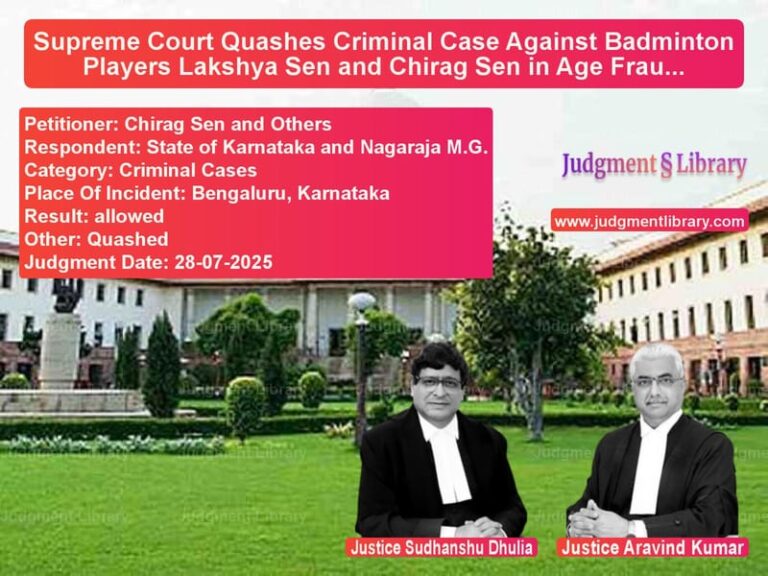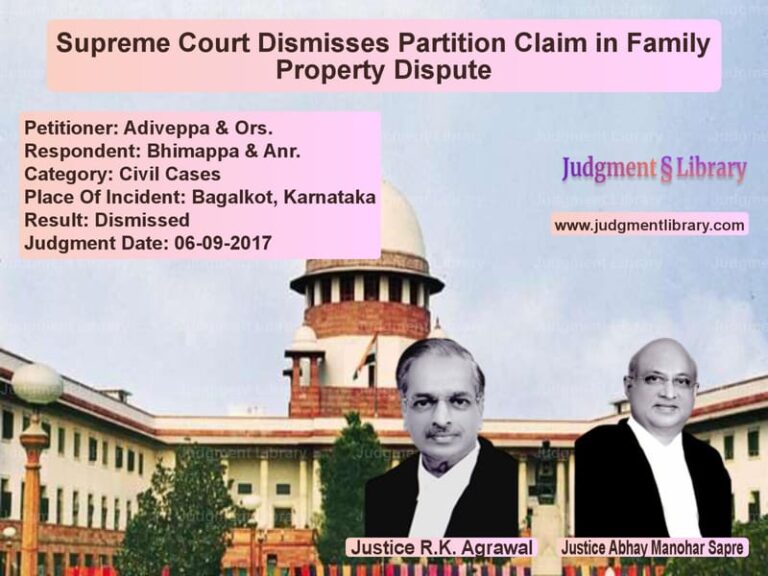Arbitration Agreement Dispute: Supreme Court’s Key Ruling on Jurisdiction and Seat of Arbitration
The case of Union of India vs. Hardy Exploration and Production (India) INC revolved around a significant arbitration dispute. The Supreme Court of India was called upon to decide whether Indian courts had jurisdiction over an arbitration award made outside India and whether the chosen venue could automatically be considered the seat of arbitration. The case raised crucial questions regarding international arbitration law, the applicability of the Arbitration and Conciliation Act, 1996, and the role of UNCITRAL Model Law in determining jurisdiction.
Background of the Case
The Union of India had challenged an arbitration award favoring Hardy Exploration and Production (India) INC. The challenge was made under Section 34 of the Arbitration and Conciliation Act, 1996. However, the High Court of Delhi dismissed the challenge on the grounds that Indian courts lacked jurisdiction since the arbitration proceedings were held outside India. The case then reached the Supreme Court through a special leave petition.
Key Legal Issues
The main legal questions before the Supreme Court were:
- Whether Indian courts had jurisdiction to entertain an application under Section 34 of the Arbitration and Conciliation Act, 1996.
- Whether the term “venue” mentioned in the arbitration agreement could be interpreted as the “seat” of arbitration.
- Whether the arbitral tribunal’s choice of location automatically implied an agreement on the juridical seat of arbitration.
Petitioner’s Arguments (Union of India)
The Union of India contended that:
- The arbitration agreement did not specify the seat of arbitration, only the venue.
- The arbitration proceedings took place outside India purely for logistical reasons and did not imply exclusion of Indian jurisdiction.
- The arbitral tribunal had not expressly determined the seat of arbitration, which meant that Indian courts retained jurisdiction.
- Previous Supreme Court rulings supported the contention that the selection of a venue alone does not determine jurisdiction.
Respondent’s Arguments (Hardy Exploration and Production)
Hardy Exploration and Production argued that:
- The arbitration took place in a foreign country, and therefore, the Indian courts had no jurisdiction under Section 34 of the Arbitration and Conciliation Act.
- By agreeing to conduct the arbitration outside India, the parties had implicitly chosen a foreign jurisdiction.
- The decision of the Delhi High Court should be upheld as it was consistent with the legal principle that international arbitration should be governed by the jurisdiction of the seat.
Judgment and Key Observations
The Supreme Court, consisting of Chief Justice Dipak Misra, Justice A.M. Khanwilkar, and Justice Dr. D.Y. Chandrachud, made the following critical observations:
1. Determination of Jurisdiction: “In order to determine the jurisdiction of Indian courts, we must first assess whether the arbitration agreement specifies the seat of arbitration. If the seat is not determined, then the mere selection of a venue does not automatically imply that Indian jurisdiction is excluded.”
2. Difference Between ‘Seat’ and ‘Venue’: “The choice of a venue for conducting arbitration proceedings does not necessarily equate to choosing a seat of arbitration. The seat has legal implications regarding jurisdiction, while the venue is merely a location where hearings take place.”
3. No Automatic Exclusion of Indian Jurisdiction: “If parties fail to specify the seat of arbitration, and if the arbitral tribunal has not determined it explicitly, then the courts in India retain jurisdiction under the Arbitration and Conciliation Act, 1996.”
The Supreme Court ruled in favor of the Union of India, setting aside the order of the Delhi High Court and confirming that Indian courts could exercise jurisdiction over the arbitration award.
Impact and Significance
The ruling has major implications for arbitration agreements and international dispute resolution:
- Clarification on ‘Seat’ vs. ‘Venue’: The judgment clarifies that unless explicitly agreed upon or determined, the venue of arbitration cannot be considered the juridical seat.
- Jurisdiction of Indian Courts: The ruling confirms that unless parties explicitly exclude Indian jurisdiction, Indian courts can review arbitration awards under Section 34.
- Guidance for Future Agreements: Parties entering into arbitration agreements must carefully specify the seat of arbitration to avoid ambiguity and jurisdictional disputes.
Final Conclusion
The Supreme Court’s judgment in this case establishes a precedent in arbitration law by reinforcing the distinction between ‘seat’ and ‘venue’ in arbitration agreements. It serves as a crucial reference point for Indian and international commercial contracts, ensuring that parties have clarity on jurisdiction before entering into arbitration proceedings.
Petitioner Name: Union of India.Respondent Name: Hardy Exploration and Production (India) INC.Judgment By: Justice Dipak Misra, Justice A.M. Khanwilkar, Justice D.Y. Chandrachud.Place Of Incident: New Delhi.Judgment Date: 25-09-2018.
Don’t miss out on the full details! Download the complete judgment in PDF format below and gain valuable insights instantly!
Download Judgment: Union of India vs Hardy Exploration an Supreme Court of India Judgment Dated 25-09-2018.pdf
Direct Downlaod Judgment: Direct downlaod this Judgment
See all petitions in Arbitration Awards
See all petitions in International Arbitration
See all petitions in Arbitration Act
See all petitions in Judgment by Dipak Misra
See all petitions in Judgment by A M Khanwilkar
See all petitions in Judgment by Dhananjaya Y Chandrachud
See all petitions in allowed
See all petitions in supreme court of India judgments September 2018
See all petitions in 2018 judgments
See all posts in Arbitration and Alternate Dispute Resolution Category
See all allowed petitions in Arbitration and Alternate Dispute Resolution Category
See all Dismissed petitions in Arbitration and Alternate Dispute Resolution Category
See all partially allowed petitions in Arbitration and Alternate Dispute Resolution Category

